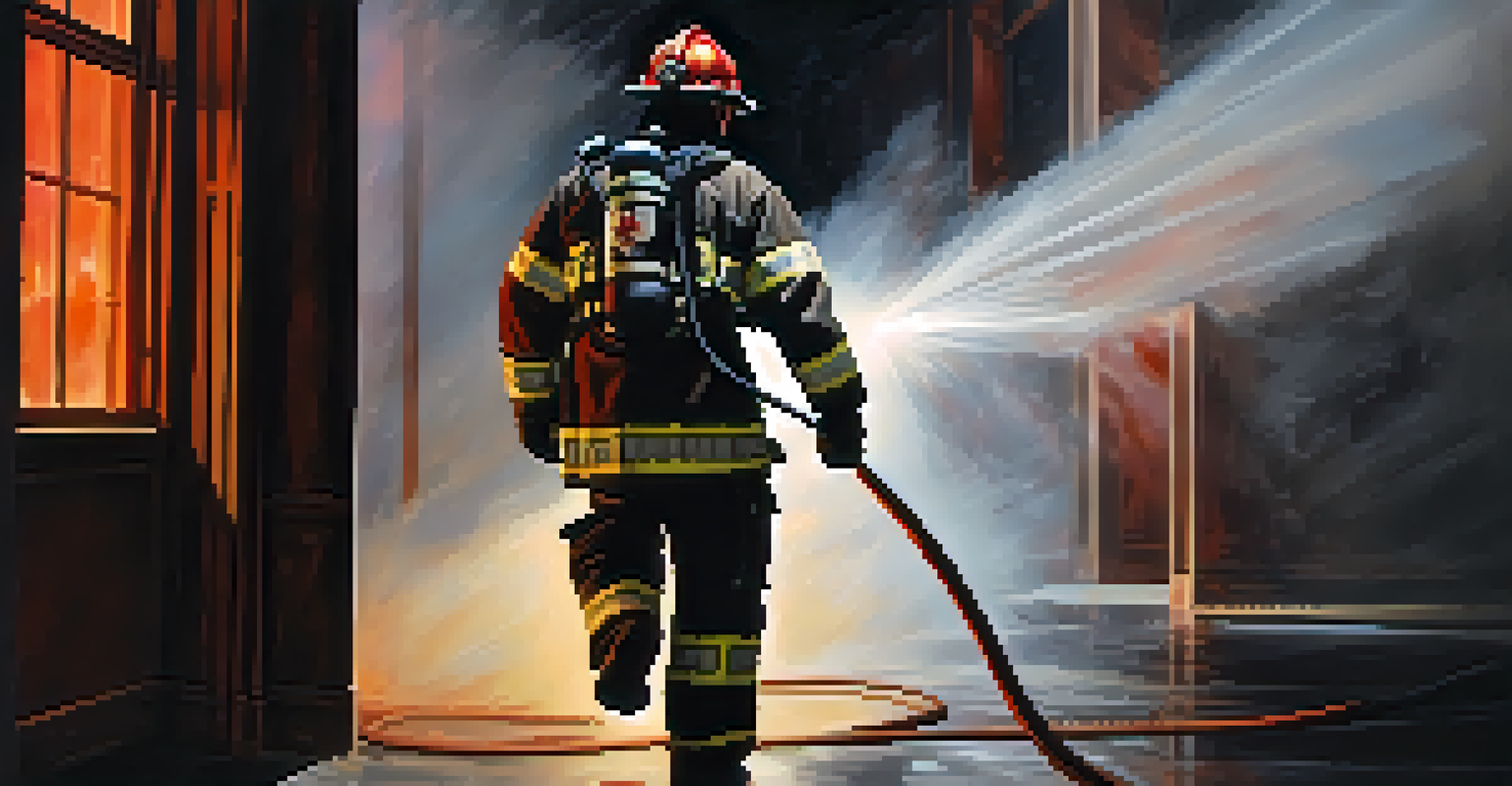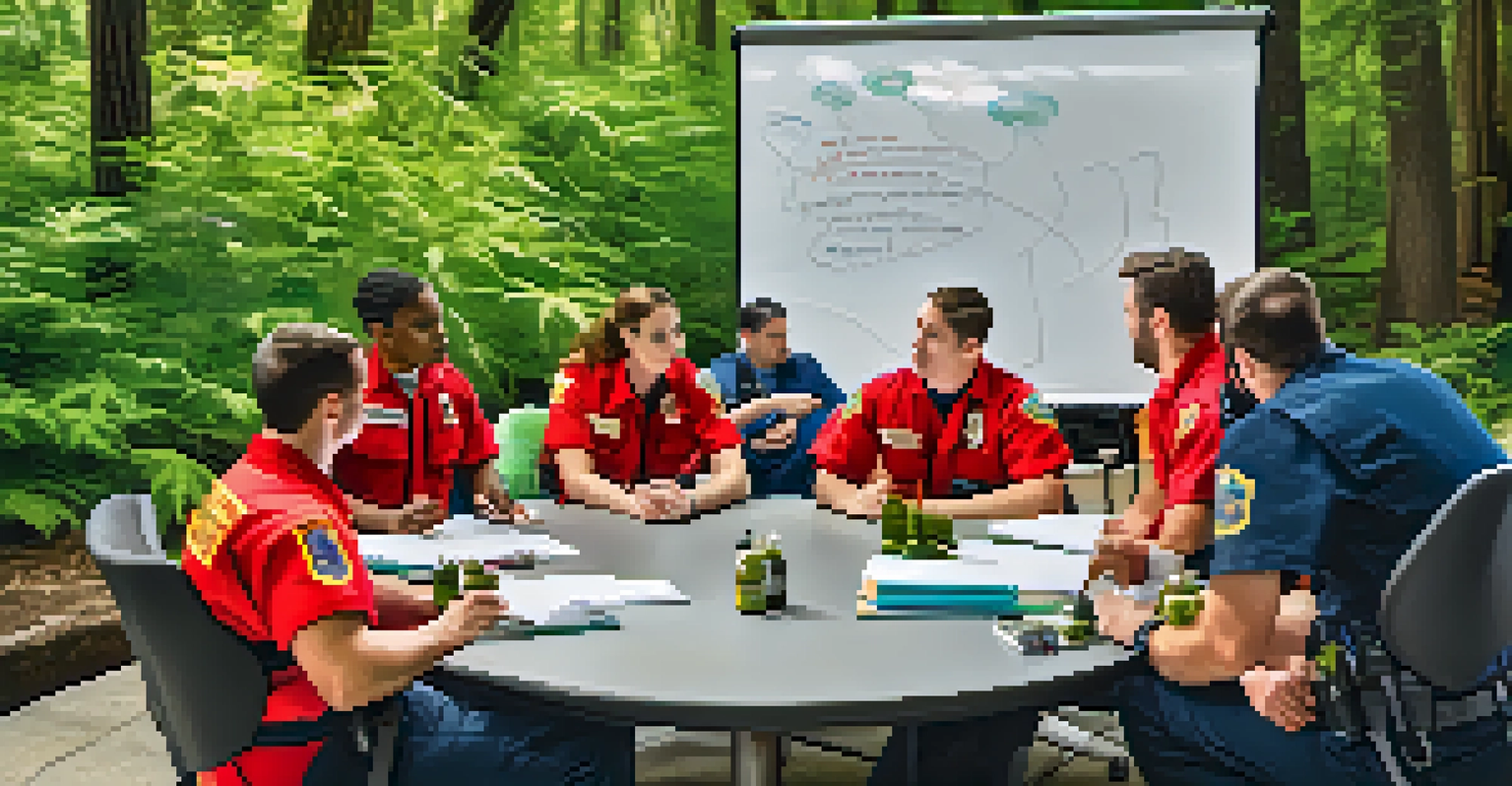Marijuana Use and Its Impact on Emergency Response Teams

Understanding Marijuana Use Among Emergency Responders
Marijuana use has become increasingly common in various sectors, including among emergency response teams. As perceptions around cannabis change, many responders may find themselves navigating their personal choices against professional expectations. This creates a unique dynamic that can influence not just individual performance, but also team cohesion and public trust.
Cannabis is a complex plant with a variety of compounds that can affect individuals differently, and understanding these effects is essential for responsible use, especially among professionals in high-stakes environments.
The reasons for marijuana use can vary widely, from stress relief to pain management. However, the implications of these choices can ripple through emergency services, affecting everything from decision-making to physical response times. By understanding the motivations behind marijuana use, we can better assess its impact on these critical teams.
It's also important to consider the legal landscape surrounding marijuana use, which varies significantly by region. Some areas have legalized recreational use, while others maintain strict prohibition. This variability can lead to confusion and complicate the policies that emergency response teams must follow.
Effects of Marijuana on Cognitive Function
Marijuana can have a range of effects on cognitive function, which is crucial for emergency responders. Studies suggest that THC, the main psychoactive component of marijuana, can impair short-term memory, attention, and judgment. These effects can be particularly concerning in high-stakes situations where quick thinking and clear decision-making are vital.

For example, a paramedic under the influence may struggle to recall vital protocols during an emergency, potentially jeopardizing patient care. Similarly, firefighters may find their reaction times slowed, which could be the difference between life and death in a crisis. Understanding these cognitive impacts is essential for ensuring the safety and efficacy of emergency response teams.
Cognitive Impacts of Marijuana Use
Marijuana can impair critical cognitive functions like memory and judgment, which are essential for emergency responders in high-stakes situations.
While some argue that marijuana can help manage stress and anxiety, its impairing effects need to be weighed against potential benefits. This nuanced understanding is critical for fostering a culture of safety and accountability in emergency response settings.
Impact on Physical Performance and Coordination
In addition to cognitive impacts, marijuana can also affect physical performance and coordination. Emergency responders often rely on precise physical skills, whether it's lifting a patient or maneuvering through difficult terrain. Marijuana use can impair motor skills, leading to reduced coordination and slower reaction times.
The challenge for emergency responders is to balance their personal choices with their professional responsibilities, ensuring that their decisions do not compromise the safety and effectiveness of their roles.
Consider a scenario where a firefighter must navigate through smoke-filled rooms. Impaired coordination could hinder their ability to move quickly and safely, putting both themselves and others at greater risk. This physical impairment is a serious concern that cannot be overlooked when discussing marijuana use among these professionals.
Moreover, the physical demands of emergency response roles mean that any impairment, even if subtle, can have significant consequences. Therefore, understanding how marijuana affects physical capabilities is essential for maintaining operational readiness and ensuring public safety.
Balancing Personal Use and Professional Responsibilities
Emergency responders face a unique challenge in balancing their personal lives with their professional responsibilities. Many may choose to use marijuana in their off-duty hours for relaxation or pain relief, but this can lead to conflicts when they return to work. It raises the question: how can responders make responsible choices that don’t compromise their job performance?
Clear policies and guidelines are crucial in helping responders navigate this balance. Organizations can provide education on the effects of marijuana, particularly in relation to their specific roles and responsibilities. By fostering an open dialogue around this topic, teams can help ensure that personal choices do not negatively impact professional duties.
Physical Performance Concerns
The use of marijuana can negatively affect coordination and motor skills, posing serious risks during emergency response operations.
Ultimately, fostering a culture that supports responsible use and mental health can empower responders to make informed choices. This proactive approach can help mitigate risks associated with marijuana use while promoting overall well-being.
The Role of Training and Education
Training and education play a vital role in addressing marijuana use among emergency response teams. Providing comprehensive information about the effects of marijuana can equip responders with the knowledge they need to make informed decisions. This includes understanding both the short-term and long-term impacts on their cognitive and physical abilities.
Workshops and seminars can serve as platforms for discussing the implications of marijuana use in the context of emergency response. These educational initiatives can also help combat stigma, allowing responders to share experiences and seek support without fear of judgment. By fostering an environment of learning, teams can better prepare themselves for the challenges posed by marijuana use.
Furthermore, ongoing training ensures that all team members are on the same page regarding policies and best practices. This alignment is essential for maintaining high standards of care and safety in the field.
Policy Development Around Marijuana Use
As marijuana use becomes more normalized, emergency response teams must develop clear policies to address its impact. These policies should take into account both the legal ramifications and the potential effects on performance. A well-crafted policy can provide a framework for handling marijuana use that prioritizes safety while respecting personal choices.
Involving team members in the policy development process can lead to more effective and accepted guidelines. By incorporating input from responders, organizations can create policies that reflect the realities of the job and the challenges faced by personnel. This collaborative approach can foster a sense of ownership and responsibility among team members.
Need for Clear Policies
Developing clear policies around marijuana use is crucial for emergency teams to balance personal choices with professional responsibilities.
Ensuring that policies are regularly reviewed and updated is equally important. As research on marijuana continues to evolve, so too should the guidelines governing its use among emergency responders.
Future Considerations for Emergency Response Teams
Looking ahead, the conversation surrounding marijuana use in emergency response teams will likely continue to evolve. As public attitudes shift and legal frameworks change, responders may face new challenges and opportunities. Staying informed about these developments is crucial for maintaining effective and safe emergency services.
Emerging research on marijuana's effects on the body and mind can provide valuable insights for policy and training. As more data becomes available, teams can adapt their practices to better support their members while ensuring public safety. This ongoing commitment to learning will be essential in navigating the complexities of marijuana use.

Ultimately, the goal should be to create an environment where responders feel supported in their choices while prioritizing their professional responsibilities. By fostering a culture of understanding and accountability, emergency response teams can thrive in an ever-changing landscape.